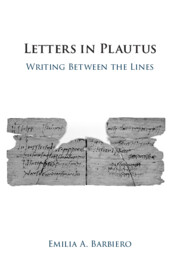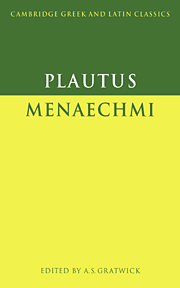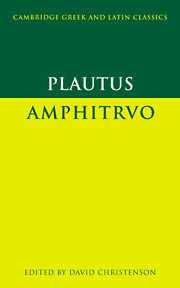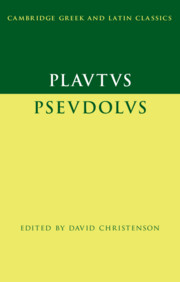Letters in Plautus
The letters in Plautus are potent tools for making and thinking about Plautine comedy inside Plautine comedy. Emilia Barbiero demonstrates that Plautus' embedded letters reify the internal performance and evince its theatricality by means of the epistolary medium's script-like ability to precipitate presence in absence. These missives thus serve as emblems of the dramatic script, and in their onstage composition and recitation they cast a portrait of the plays' textual origins into the plays themselves. But by virtue of their inscription with a premise which is identical to that of the comedies they inhabit, the Plautine letters also reproduce the relationship between the playwright's Greek models and his Latin translations: the mirror effect created by a dramatic text inscribed, read and realized within a dramatic text whose plot it also duplicates generates a mise-en-abyme which ultimately serves to contemplate problems of novelty and literary ownership that beset Plautus' literary endeavor.
- Uses textual evidence to elucidate the origins of Plautine comedy
- Sheds light on Plautine translation
- Provides a deeper understanding of the epistolary medium in antiquity
Product details
July 2024Paperback
9781009168526
241 pages
229 × 152 × 13 mm
0.356kg
Available
Table of Contents
- List of Critical Editions
- Note on the Text
- Introduction
- 1. Bacchides: A Scene of Writing
- 2. Persa: Whose Play Is It Anyway?
- 3. Pseudolus: Fake It Till You Make it
- 4. Curculio: The Ring Is a/the Thing
- 5. Epidicus and Trinummus: The Roads Not Taken
- Postscripts
- Appendix: Text, Reading and Writing in Plautus
- Bibliography.





